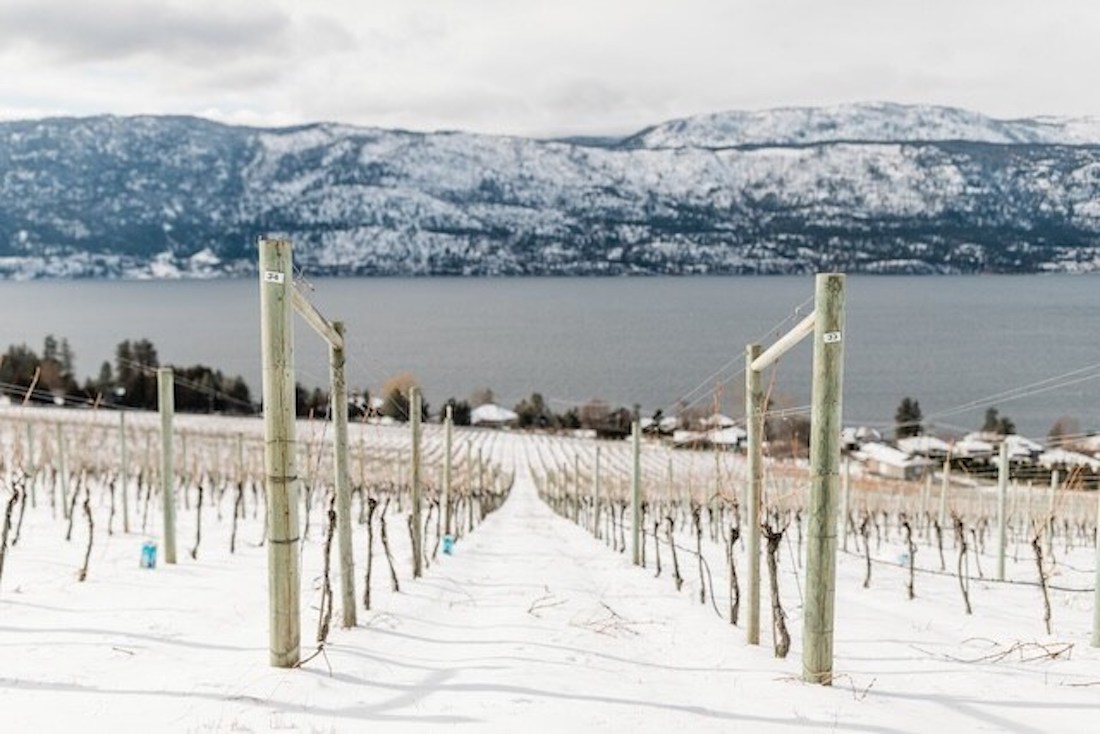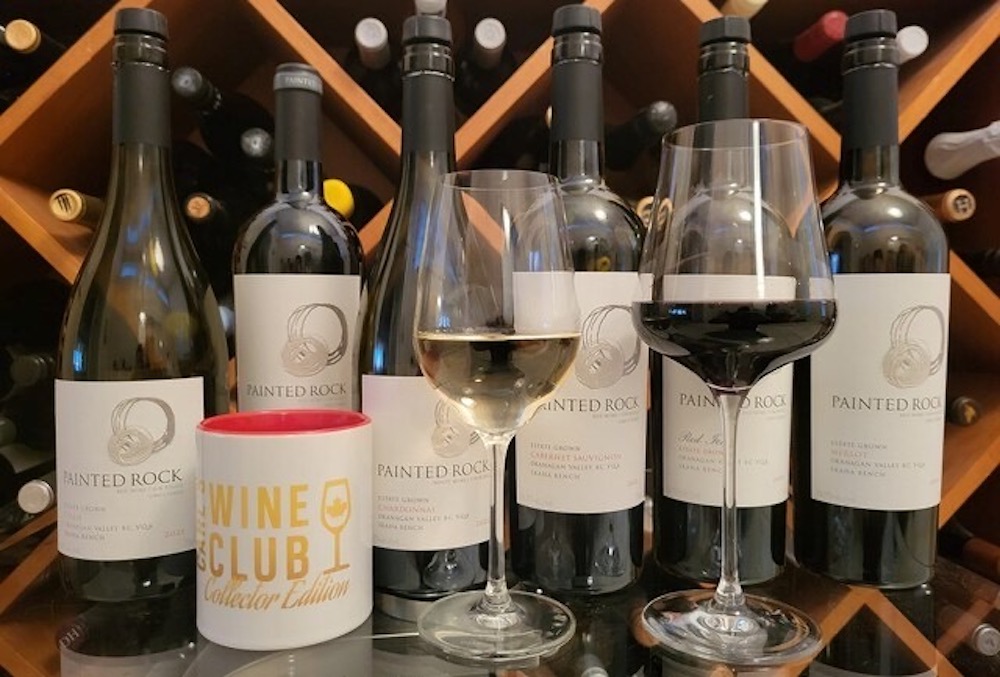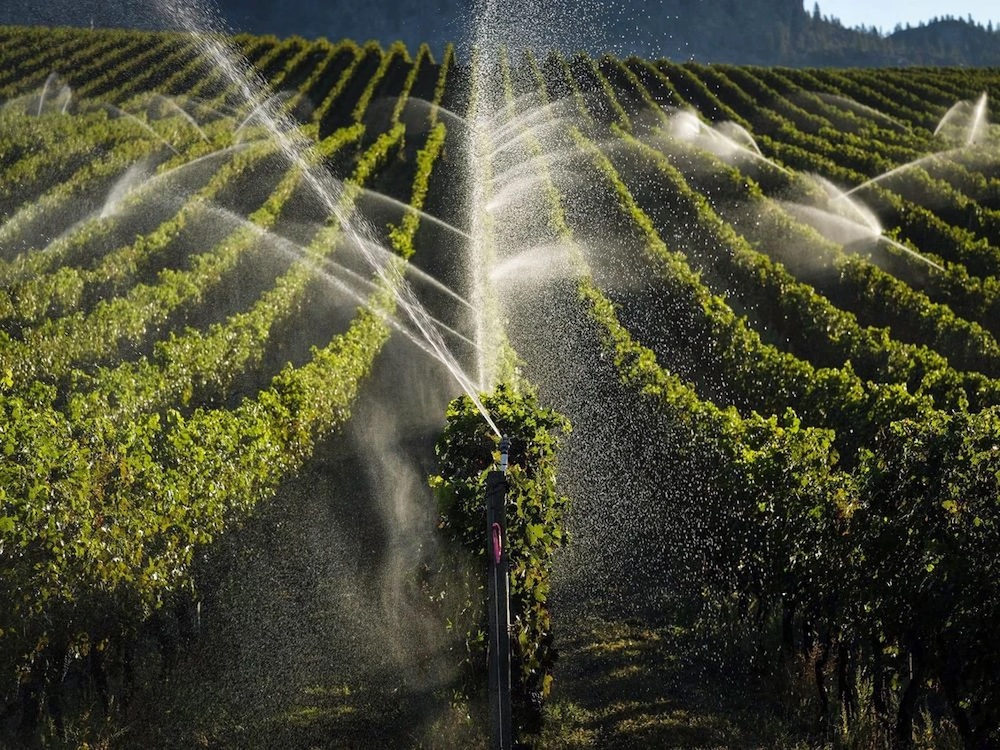By Rick VanSickle
Some B.C. wineries, facing more crippling winter damage to wide swaths of vineyards, are looking east to Ontario for help.
Frank Neufeld, who owns and operates the Niagara Wine Exchange, sent an email to his list of customers asking if anyone can offer Niagara wine to select B.C. wineries. The wine exchange matches those who have wine to sell with those in need of it.
“I’m sure you heard about the second devastating frost that happened back in mid-January in the Okanagan Valley in B.C.,” Neufeld wrote. “This follows on the heels of a frost that took place back in December 2022 which significantly affected the output of the 2023 harvest.”

Neufeld said that the Niagara Wine Exchange has been approached by wineries in the Okanagan Valley to help source Ontario wines for shipment to B.C. with a focus on varieties that “comprise significant volume” in Ontario, specifically Cabernet Franc, Cabernet Sauvignon, Cabernet blends, Chardonnay (oaked and unoaked), Gamay Noir, Merlot, Pinot Noir and Riesling from vintages 2022 through 2023.
Neufeld said the first step will be to assemble samples to be sent out to B.C. for a tasting to be scheduled in mid-February.
Neufeld said he contacted Miles Prodan, CEO of the Wine Growers of B.C., a year ago last summer when the Okanagan first suffered a shortfall, but there were no takers for Ontario grapes or wine. It’s quite serious now,” he said. “They’ve come back to us, there are now people interested in buying.”
Prodan told Wines in Niagara “we introduced Wine Exchange to our members last year, leaving it for them to follow up directly.” Now with another extreme freeze event in January, “I’ve heard indirectly some have been in contact with Frank (Neufeld) but not directly from either party.”
“Wine Growers B.C. is working with industry to identify all the options as well with the B.C. government on temporary emergency measures to make those options viable.”

Neufeld said he’s collecting quite a few samples of Ontario wines to send out west for interested parties to sample, but also knows he’s in competition with Washington wineries, which also have a surplus of grapes and wine and is much closer to B.C. (in distance and style) and likely cheaper. “The plus for us, it’s still Canadian wine they will be selling.”
Once the samples are tasted and wineries in B.C. make their decisions, any wine shipped to B.C. will be up to the buyer and seller to get it there directly; the Niagara Wine Exchange does not arrange shipping.
Meanwhile, the dire situation in the B.C. wine industry has caught the full attention of the opposition party B.C. United (formerly Liberal) party, which is demanding support for the besieged wine industry and is lambasting the provincial government for twiddling its thumbs on the issue, according to a report by Castanet.
Opposition leader Kevin Falcon said in a Tuesday news release that Premier David Eby and his government need to get behind the wine industry, which has been hammered by cold snaps and an Alberta government that is trying to halt direct-to-consumer B.C. wine sales to its province.
“British Columbia has made a name for itself over the past two decades as the source of world-class wines,” Falcon said. “The wine industry is integral to countless communities in our province, and without it there would be devastating effects on local economies, tourism, and hospitality, and so many families throughout B.C.
The B.C. United party wants the government to:

• Create an emergency working group with the B.C. wine industry and federal government to develop solutions and identify the level of financial support necessary for local wine growers and producers to survive the shortage expected to last for the next three to four years.
• Prioritize the creation of a Canadian Vintners Quality Alliance (VQA) certification.
• Temporarily expand the existing tax incentives for wines with 100% B.C.-grown grapes to include wines produced in B.C. with 100 percent Canadian-grown grapes.
• Work with the Ontario government and Ontario wine producers to reduce any barriers to importing Ontario grapes and juice so as to prevent the need for imports from Washington state.
• Immediately schedule a meeting with Alberta Premier Danielle Smith to resolve the issue with Alberta actively harming the B.C. wine industry with no legal basis.
“With our B.C. wine industry facing the extraordinary challenges that nature has hit us with, the last thing we need is a politically motivated trade threat from Alberta,” Painted Rock Estate Winery proprietor John Skinner said. “We sincerely appreciate Kevin Falcon and B.C. United’s support of our efforts to find a peaceful and constructive solution to the trade issue.”







If anyone is looking for varied selection of Niagara wines you can contact Marc Pistor at 905-380-7846 or email winemaker@drinkcollab.ca
Range of quality from single vineyard, medium to blending quality.
Red Hybrid 9725L
Riesling 9755L
Gewurztraminer 4675L
Cabernet Franc 10925L
Rosé 4700L
Cabernet Sauv 6250L
Gamay Noir 1800L
Malbec 4150L
Merlot 9915L
Pinot Noir 4950L
Viognier 1675L
Vidal 3000L
Syrah 2900L
Pinot Grigio 7000L